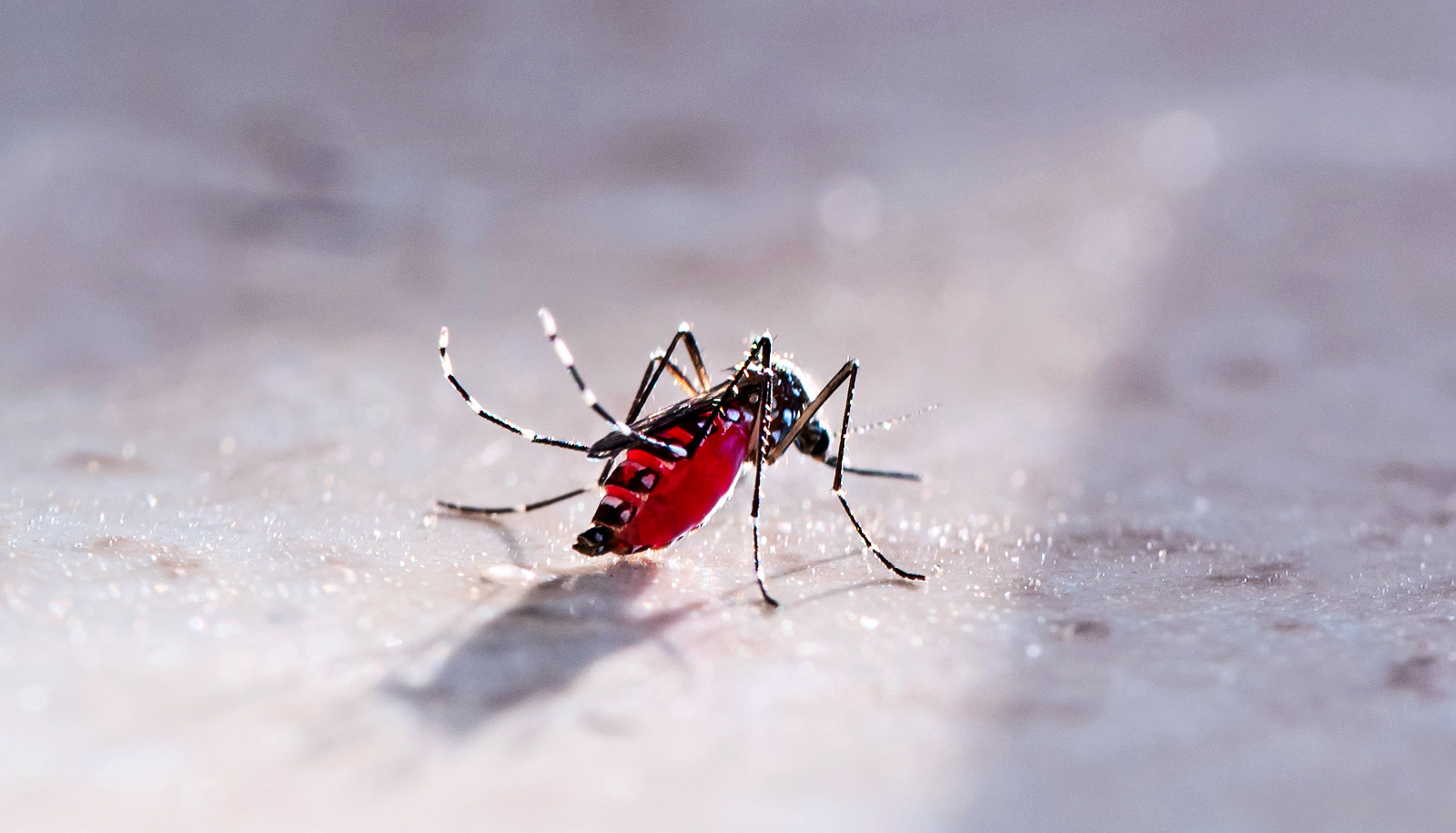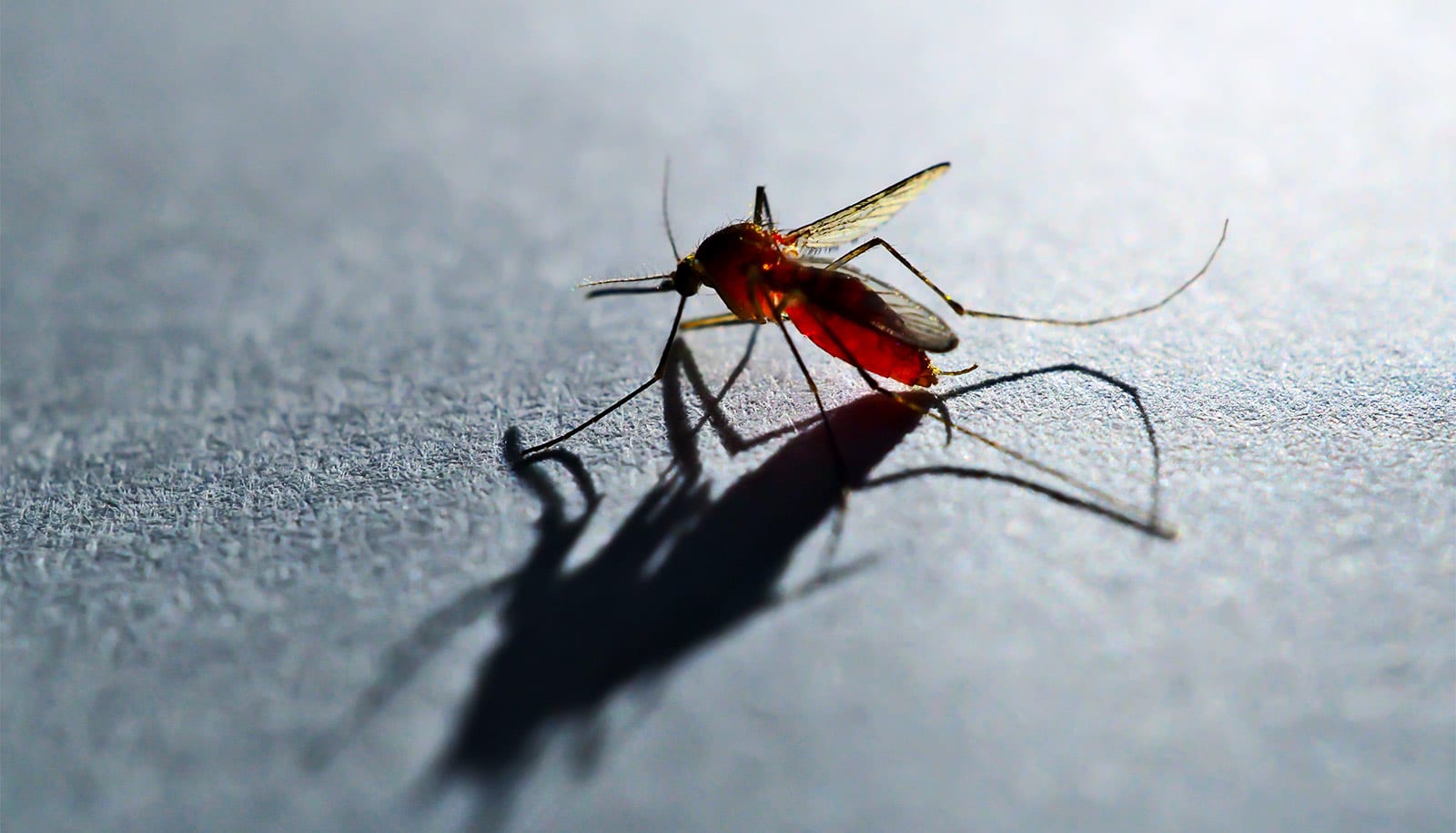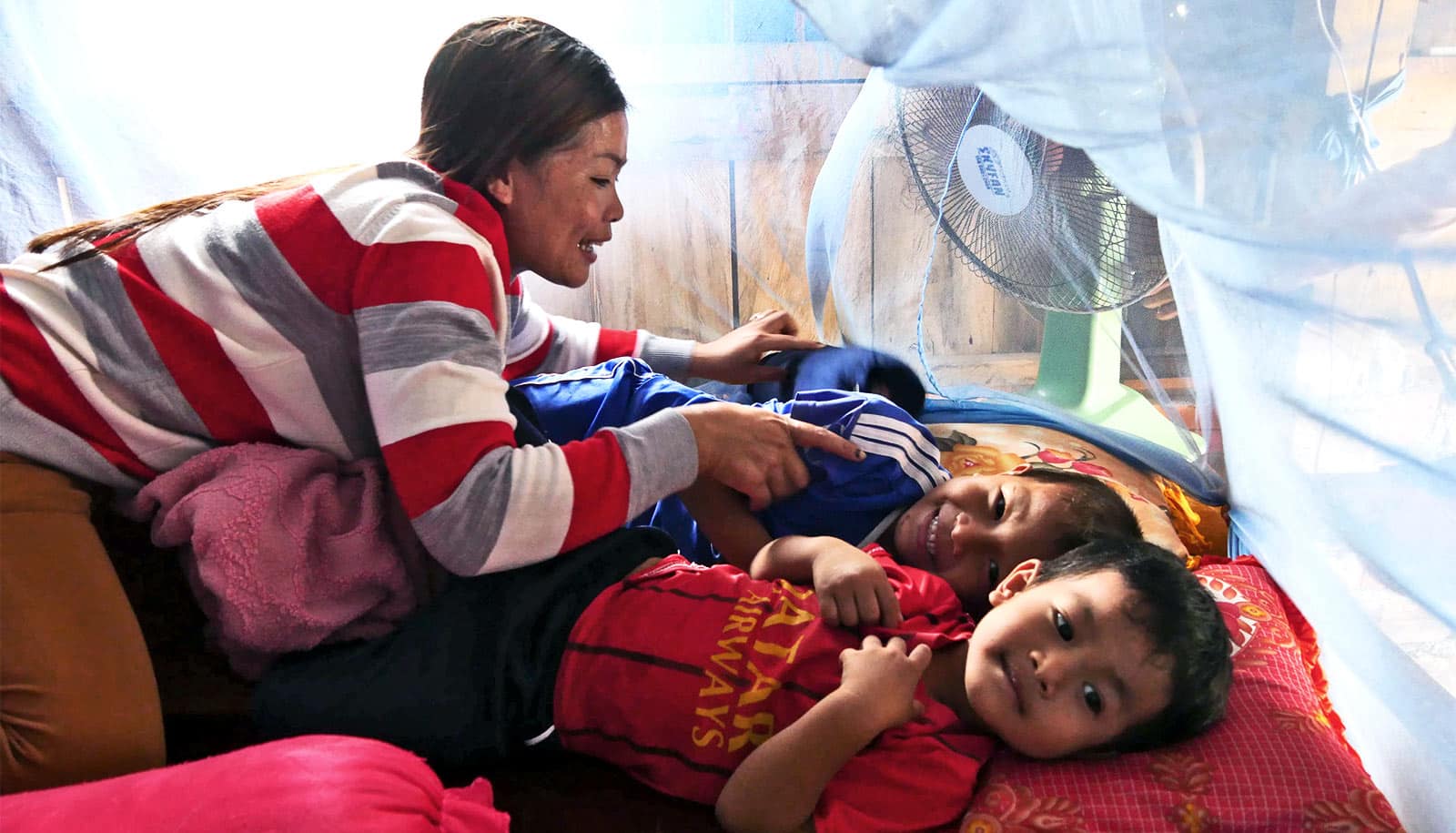Researchers have figured out how the mosquito immune system combats malaria parasites at multiple stages of development.
A better understanding of the mosquito immune response could lay the groundwork for future research to combat the transmission of malaria, says Ryan Smith, assistant professor of entomology at Iowa State University and lead author of the new study in PNAS.
Worldwide, roughly 219 million cases of malaria, a disease transmitted to humans from the bite of infected mosquitoes, occurred in 2017, according to the Centers for Disease Control and Prevention. Most cases are concentrated in tropical and subtropical climates such as sub-Saharan Africa and South Asia. The disease resulted in 435,000 deaths in 2017, the CDC reports.
Mosquitoes are required to transmit malaria, acquiring malaria parasites by biting an infected person, then transmitting the disease weeks later after the parasite has completed development in the mosquito.
“Mosquitoes are generally pretty good at killing off the parasite,” Smith says. “We wanted to figure out the mechanisms and pathways that make that happen.”
The researchers treated mosquitoes with a chemical that depleted their immune cells, which the insects need to fight off pathogens. The experiments showed that malaria parasites survived at greater rates in mosquitoes when researchers depleted the immune cells.
The study also illuminates how these immune cells promote different “waves” of the mosquito immune response targeting distinct stages of malaria parasites in the mosquito host.
The findings increase the understanding of a complement-like pathway that is involved in the initial recognition and killing of parasites, similar to that found in mammals, Smith says. The work also implicates phenoloxidases, an insect-specific immune response, in causing a secondary immune response directed at later stages of the malaria parasite, he says.
Understanding these immune responses could lead to opportunities to eliminate malaria parasites in the mosquito, thus reducing the transmission of malaria. For instance, Smith says scientists could use genetic approaches to make mosquitoes resistant to malaria parasites. Introducing mosquitoes with enhanced immunity in endemic areas of malaria could significantly reduce human malaria cases.
“There are more steps required to validate that kind of approach, but we think this study lays a foundation for those future experiments,” Smith says.
Source: Iowa State University


